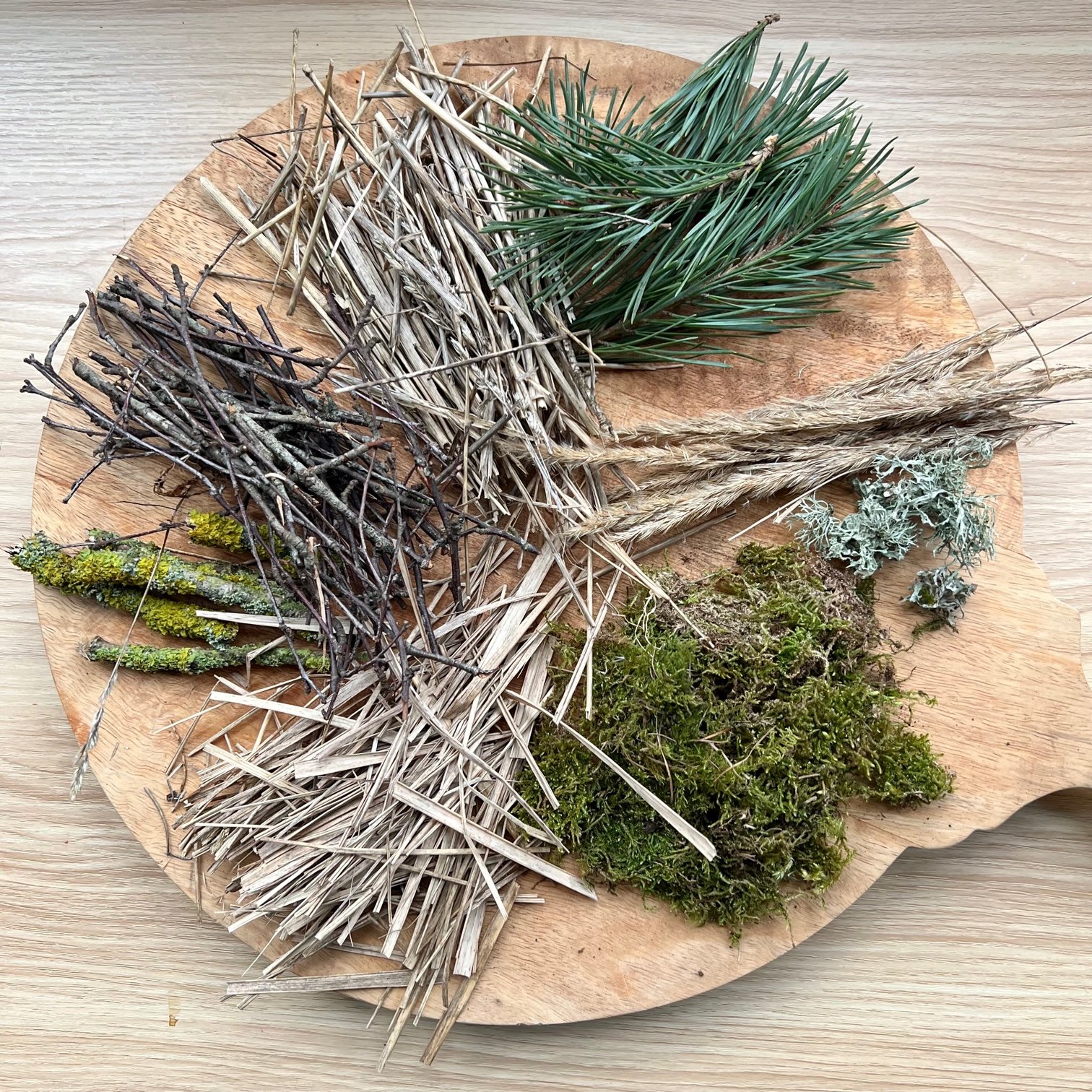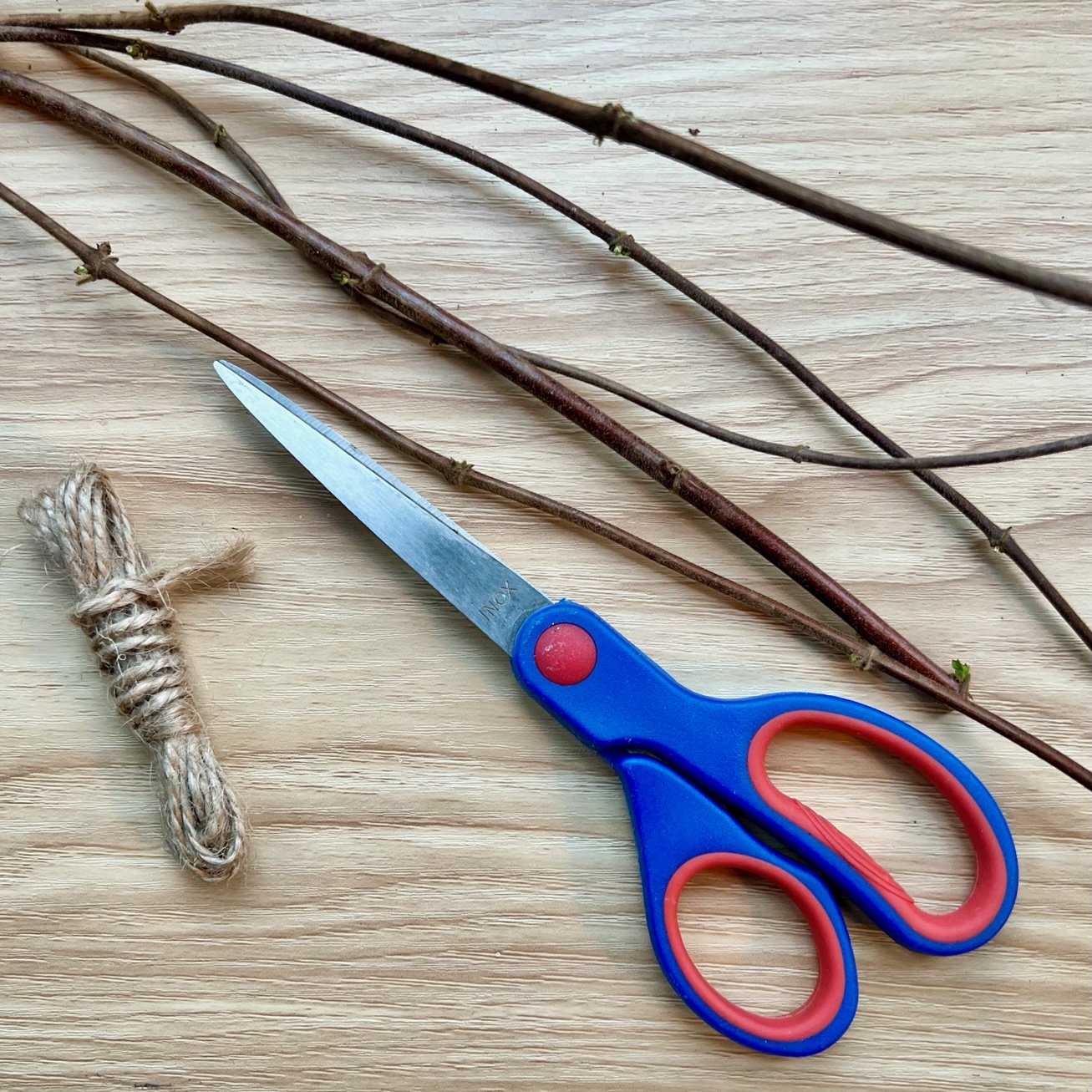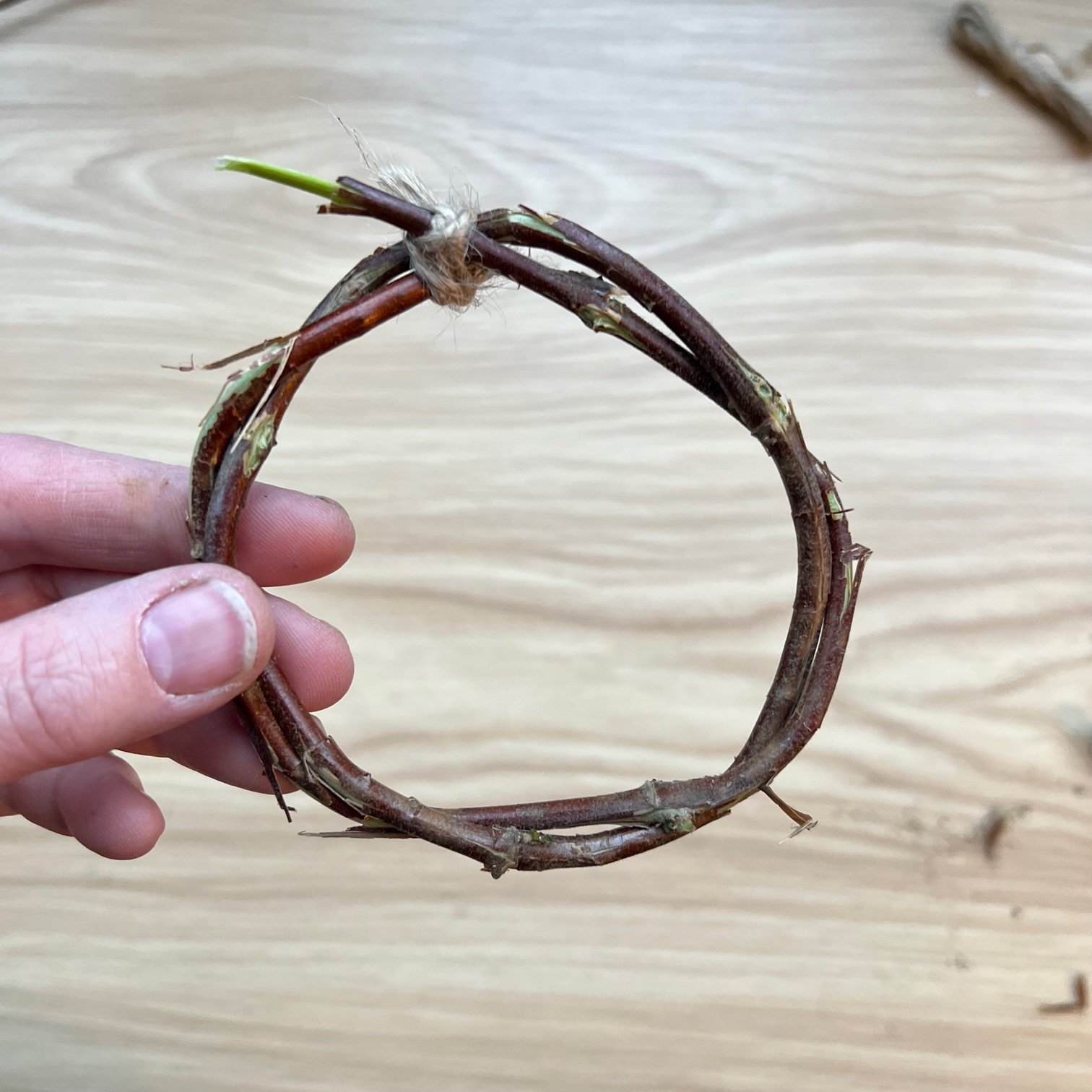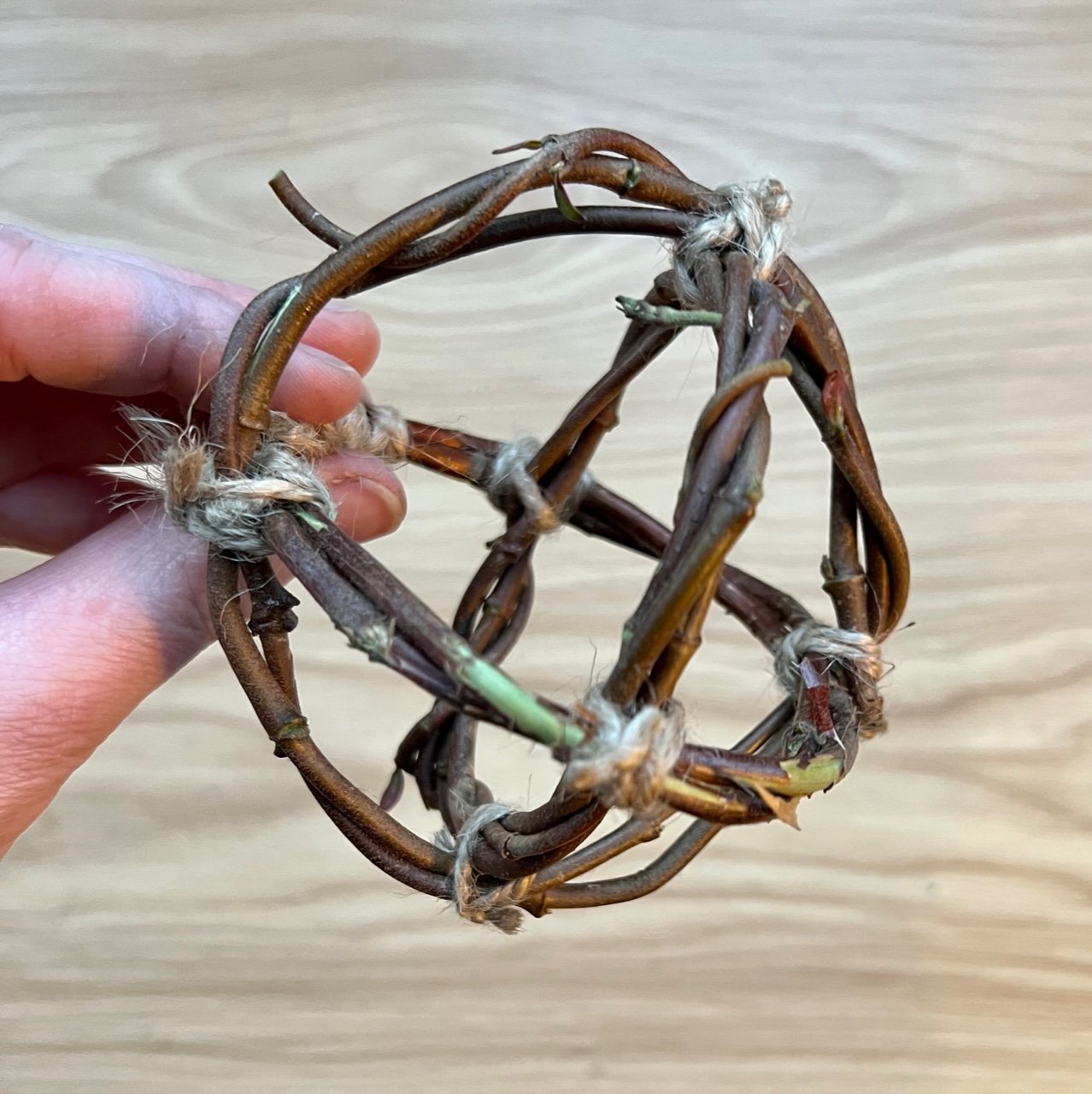Make a natural nesting material dispenser
From early spring to the end of summer is nesting season for birds. There are lots of things you can do to help birds during the nesting season, such as:
growing plants that offer shelter and food
avoiding the use of pesticides
not cutting down trees and bushes in the spring and summer, but waiting until autumn and winter, once the breeding season has finished
Providing regular food and water
You can also help the birds by leaving natural debris around your garden for birds to use as nesting material. For example, leave a pile of grass or plant cuttings out instead of composting them and if you rake moss from your lawn, leave it to one side for birds to collect.
Sometimes it isn’t practical to leave out garden debris, particularly if you have a small garden but you can still provide nesting materials for birds by hanging them up in a dispenser. I made this ball nesting dispenser from vines woven into a ball shape. It looks great hung up, uses natural materials and will last for some time.
What you will need:
Pliable branches or vines
Natural twine
Scissors
A straight stick
Nesting materials such as:
Twigs and small sticks
Dried grasses
Moss
Leaves
Pine needles
Plant fluff
Strips of bark
What you need to do:
First you will need to collect some pliable branches or vines and your nesting materials. I used some trimmings from some honeysuckle and jasmine climbers that I have in my garden for the vines.
Birds will use a variety of materials to build their nests but commonly used materials that you can collect include sticks and twigs, moss and grass, tree bark, leaves, mud, feathers, (untreated) sheep wool, pine needles, fluff from plants and even spider webs. Spider webs are often used as ‘glue’ to stick the nest together, however, I didn’t fancy collecting any so left that to the birds!
It’s important to use natural and non-toxic materials in your vine ball. There are some materials that are often recommended to leave out for birds that can actually be harmful. For instance, pet hair can be contaminated with chemicals used to treat fleas, worms and other medical conditions. Yarn, string and human hair is also unsafe as it can tangle around and cut through bird legs or wings. Tumble dryer fluff contains detergent chemicals and crumbles once it’s been rained on, making it unsuitable for nests.
To make your vine ball nesting material dispenser, start by trimming off all of the side branches of your vines.
Take one of the lengths and make a small loop. Hold onto the point where the vine crosses and then carry on coiling the vine around, twisting it round the first circle as you go. Once you’ve met the end of the vine again and created a circle from two coils, tie together with some twine and then cut the end off the vine.
Make two more of these circles from your vines and then then fit the three loops together to form the framework for the ball, tying some twine around the points where the circles meet.
Now wind another vine around and around the framework, threading it through the vines where you can, trying to create a spherical shape. Make sure you leave plenty of gaps in which you can stuff your nesting material!
Tie a loop of twine around the top of the ball so you can hang it from a tree.
Once you are happy with the shape, push a straight stick through the middle of the ball which will provide the birds with a perch to stand on while they’re pulling out the nesting materials.
Gently stuff the ball with the nesting materials that you have collected. Try to make sure some of it is poking out and easily accessible for the birds.
Now you can hang up your nesting material dispenser to a tree or fence in your garden and wait for the birds to visit!
Author: Denise Hope, home educating mum of two boys








